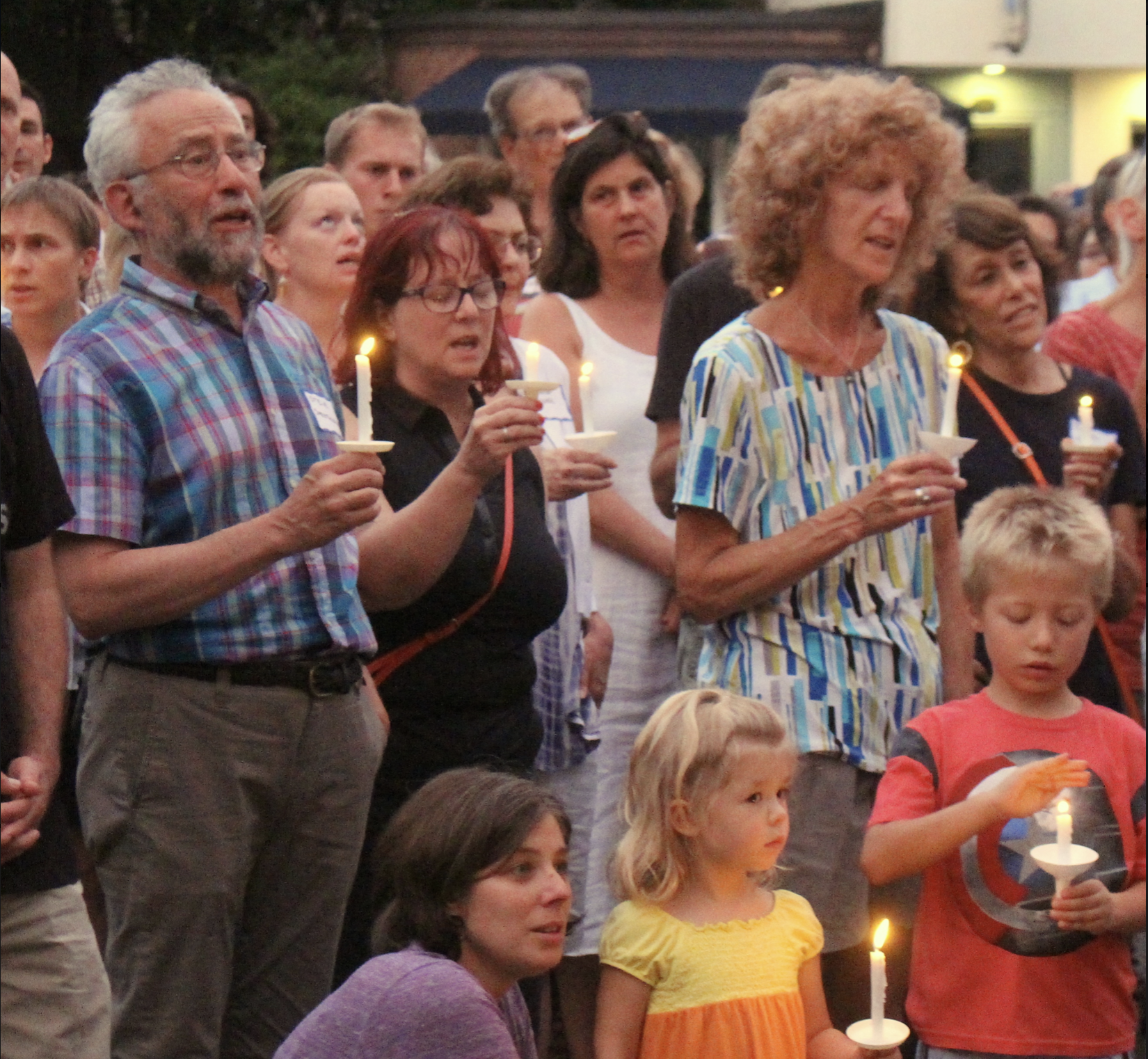Photo: A vigil at First Church Belmont
To the editor:
The Board of Belmont Against Racism is saddened, anguished and, yes, angry at the taking of Black lives in our country by law enforcement officers over these past several weeks, culminating in the death of George Floyd. The COVID-19 pandemic will be overcome by our scientists, medical leaders and public officials. We ask why this same focus and determination has not and still will not be applied to eradicating racial hatreds, injustice and violence.
Belmont Against Racism was begun 28 years ago as a sad, anguished and angry response to the police brutality directed at Rodney King on another spring day in Los Angeles. And many of us in 1992 recalled too well the events of the 1960s and the Kerner Commission report which declared that “our nation is moving toward two societies, one black, one white—separate and unequal.” So very little has changed and so it is time that we ask each other and our civic and community leaders why and how we can accept this and call ourselves a civil society whose laws and structures protect everyone, not just those whose skin tone happens to be white.
Stephen Carter, a Yale Law Professor and former clerk of Supreme Court Justice Thurgood Marshall, stated in an interview on NPR this week that this hatred, injustice and violence will continue until our country can forsake our belief in the inherent superiority of white people and inherent inferiority of black people. We believe he is right. In “These Truths,” her history of the country, Jill Lepore observes the many ways we have failed to ever really be faithful to the words from the Declaration of Independence in each generation as nativism, nationalism and white supremacy have too often contradicted the aspirations that neither the founders nor we have ever lived up to. She quotes Abraham Lincoln, who said in 1862, “We must disenthrall ourselves and, and then we shall save the country.” More than 150 years later, it seems we have barely begun to do this.
Some will be tempted to focus on the protests, riots and burning. While we too regret that so many small businesses and communities are ravaged as well by the rages that are swirling, this is not the core problem now, nor was it in 1992, nor in the 1960s. It is too easy to let our sympathy and support for those who are the rage’s victims become “the story” and not the underlying cause of racism. Kareem Abdul-Jabbar makes this point in his op-ed piece in today’s Los Angeles Times. He quotes Langston Hughes’ poem “Harlem:”
What happens to a dream deferred?
…Maybe it sags
like a heavy load.
Or does it explode?
We are fortunate in Belmont to have leadership in our Town’s Police Department who have embraced The 21st Century Policing Principles and are demonstrating their commitment to anti-racist policing in our town. Some in BAR can recall times and incidents when such principles were not adhered to as well. But, we have made progress in our community. Belmont is not Minneapolis, LA, St. Louis or any of the larger cities where police violence against blacks are too common and until the age of the smartphone often unseen, unless you happened to be the black victims.
But, if we can make progress in our small town, we must retain some hope that it can be done elsewhere. However, focusing just on law enforcement is also a mistake. We who are white must continue the work to become disenthralled. It is done in small and large ways. We must pick ourselves up from these ashes and recommit to creating a country that someday will see beyond the color of our skins.
Michael Collins
BAR Board Member








Where are their masks?